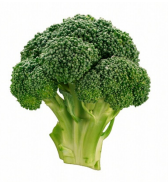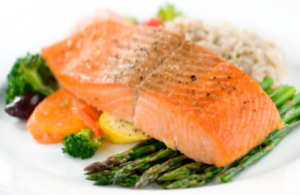Superfoods have incredible health benefits, packing a powerful nutritional punch that helps protect against cancer and heart disease, lower cholesterol, protect the organs from toxins and improve digestive health. Some nutritionists even say superfoods can help you live longer. Once you start consuming superfoods on a regular basis, you will start noticing the difference in not just how you feel, but also how you look.
10 easy to eat SUPERFOODS
 1. Broccoli: This vegetable is loaded with vitamin C, folic acid, vitamin K and carotenoids, which are packed with vitamin A and can protect your cells from the damage of free radicals, enhance immune system function and improve reproductive health. Just half a cup of broccoli per day is said to help prevent a number of cancers, particularly cancers of the lung, colon, rectum and stomach.
1. Broccoli: This vegetable is loaded with vitamin C, folic acid, vitamin K and carotenoids, which are packed with vitamin A and can protect your cells from the damage of free radicals, enhance immune system function and improve reproductive health. Just half a cup of broccoli per day is said to help prevent a number of cancers, particularly cancers of the lung, colon, rectum and stomach.
2. Sweet potatoes: They’ll satisfy your craving for starches but are far healthier than their white, nutritionally lacking cousins. Carotenoids, vitamin C, potassium and fibre are just a few of the benefits of eating this savoury-sweet veggie, which is ranked among the highest vegetables on the nutrition scale. Sweet potatoes can help stabilise blood sugar, making them a great choice for diabetics, and are relatively low in calories.
3. Berries: They’re full of antioxidants, phytonutrients, low in calories and high in water and fibre to help control blood sugar and keep you full longer. Their flavours also satisfy sweets cravings for a fraction of the calories in baked goods. Blueberries lead the pack because they are among the best source of antioxidants.
4. Salmon or Tuna: are super foods’ because of their omega-3 fatty acid content. Studies show that omega-3 fatty acids help protect heart health. These fish are low in calories (200 for 3 ounces), have lots of protein, is a good source of iron, and is very low in saturated fat.
5. Nuts: have gotten a bad rap because of their high fat content. But their protein, heart-healthy fats, high fibre, and antioxidant content earn them a place on the top 10 list. The key to enjoying nuts is portion control. All nuts are healthful in small doses (portion should equal the palm of your hand), and studies show they can help lower cholesterol levels and promote weight loss.
6. Quinoa: is now readily available in many supermarkets and is one of the best whole grains you can eat. It is an ancient grain, easy to make, interesting, high in protein, fibre and a naturally good source of iron. Quinoa (pronounced keen-wa) also has plenty of zinc, vitamin E, and selenium to help control your weight and lower your risk for heart disease and diabetes. Quinoa is as easy to prepare as rice and can be eaten alone or mixed with vegetables, nuts, or lean protein for a whole-grain medley.
7. Eggs: make the list because they are nutritious, versatile, economical, and a great way to fill up on quality
protein. Studies show that if you eat eggs at breakfast, you may eat fewer calories during the day and lose
weight without significantly affecting cholesterol levels. Eggs also contain 12 vitamins and minerals, including
choline, which is good for brain development and memory.
8. Kiwis: are among the most nutritionally dense fruits and are full of antioxidants. One large kiwi fruit supplies your daily requirement for vitamin C. It is also a good source of potassium, fibre and a decent source of vitamin A and vitamin E, which is commonly deficient in Western diets. Kiwis are one of the only fruits that provide this.
9. Goji berries: They’ve been called the most nutritionally dense food on Earth, and can be purchased at your local supermarket. Goji berries contain more vitamin C than oranges, more beta carotene than carrots and more iron than steak. The dried Himalayan fruit is also a great source of B vitamins and antioxidants and contains 15 amino acids. Goji has been used medicinally in China for centuries to improve blood circulation, strengthen the limbs, improve eyesight, protect the liver, increase libido and boost immune function.
10. Plain Yogurt: is higher in calcium than some other dairy products (one cup contains 50 per cent more calcium than the same size serving of milk), and contains a great package of other nutrients, including protein, magnesium and potassium. Yogurt contains active cultures known as “friendly bacteria” that restore healthy balance in the digestive system.
To learn more about how you can add superfoods to your diet, book an appointment with our experienced Dietician!











